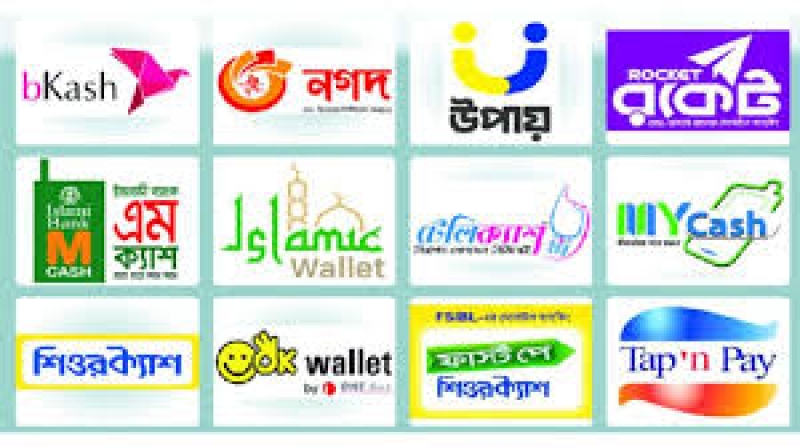- Eminent writer Badruddin Umar passes away |
- Dhaka’s air recorded ’moderate’ Sunday morning |
- Clashes in Hathazari over FB post; Section 144 imposed |
- Total Lunar Eclipse to Be Visible Sunday Night |
- 5 killed when bus plunged in Laxmipur canal |
Bangladesh Eyes Fintech Leap, But Hurdles Remain

Bangladesh is on the brink of a fintech revolution—but only if regulatory, cybersecurity, and financial inclusion gaps are addressed, experts say.
Fueled by the rapid rise of mobile financial services (MFS), the rollout of digital banking, and innovation across payments, lending, and wealth management, the country is progressing fast toward a cashless economy.
According to the Bangladesh Fintech Innovation Council (BFIC), the sector now boasts over 500 active startups spanning MFS, lending, wealthtech, and neobanking. In 2024 alone, MFS transactions hit $158 billion (Tk 17.37 trillion), reflecting a 28% year-on-year increase, per Bangladesh Bank. That translates to over Tk 4,800 crore transacted daily, placing Bangladesh among the world’s busiest mobile money markets.
With over 239 million active MFS accounts—exceeding the national population—and a network of 1.8 million agents, services like bKash, Nagad, and Rocket dominate the landscape. bKash alone reported Tk 5,058 crore in revenue and Tk 315 crore in profits last year.
The Digital Banking Era Begins
Momentum is set to intensify as Bangladesh Bank began accepting applications for digital banking licenses on September 1, 2025, with a submission deadline of September 30. The central bank also increased the minimum paid-up capital to Tk 300 crore to ensure robust market entrants.
Fintech expert Engineer Md Firoz Kabir called the move “a breakthrough for Bangladesh’s financial sector,” predicting that it would accelerate the shift to a cashless economy, promote inclusion, and stimulate digital innovation.
Traditional banks, telecoms, and tech startups are racing to stake their claim. Beyond dominant MFS providers, firms like Chaldal, Pathao, and Sheba.xyz are embedding financial products into their platforms, using rich customer data to develop digital offerings.
“Fintech is no longer peripheral—it’s reshaping how Bangladeshis save, borrow, and transact,” said Ahmed Nazim, an AI and data science enthusiast. He added that while some startups may fail, the winners will reduce transaction costs and drive inclusion for SMEs and underserved communities.
BFIC’s Fintech Time Machine: What’s Ahead (2025–2030)
BFIC’s forward-looking report, Fintech Time Machine, outlines six transformative waves:
2025: AI-Driven Hyper-Personalization – Predictive AI will automate savings, optimize investments, and act as a smart financial companion.
2026: Cross-Border Digital Currencies – CBDCs and stablecoins become the norm, revolutionizing remittances and global payments.
2027: Blockchain-Backed Trust – Mass adoption of decentralized ID, smart contracts, and tokenized assets for greater transparency and security.
2028: Green & Sustainable Fintech – ESG scoring, carbon tracking, and green lending become standard features in platforms.
2029: Quantum Finance – Quantum computing will supercharge fraud detection, modeling, and data encryption.
2030: Autonomous Finance – AI-driven systems manage investments, lending, and risk without human intervention, operating at machine speed.
The Inclusion Challenge
However, major hurdles persist. At the Cashless Bangladesh Summit 2025, M Mansur Reaz, Chairman of Policy Exchange Bangladesh, noted that only 46 million of the country's 120 million adults are covered by digital banking.
Key statistics presented at the summit:
60% of the population remains unbanked
65% of bank accounts aren’t linked to digital banking
Only 2.6 million users have credit cards
Mahtab Uddin Ahmed, President of ICMAB, stressed the urgency:
“The shift to a cashless economy is no longer a future vision—it’s an immediate necessity. Stakeholders must act now to build a transparent, secure, and inclusive digital financial ecosystem.”
With a large population still outside the formal banking system, digital inclusion remains the biggest challenge—and opportunity. Experts warn that unless these structural gaps are addressed, Bangladesh’s fintech boom could lose momentum before it fully takes off.
Conclusion
Bangladesh stands at a historic inflection point. With strong regulatory frameworks, rising digital literacy, and growing investor interest, the fintech sector could be the backbone of the country’s next economic leap. But to unlock that future, the barriers of exclusion, policy gaps, and cybersecurity risks must be tackled head-on.

